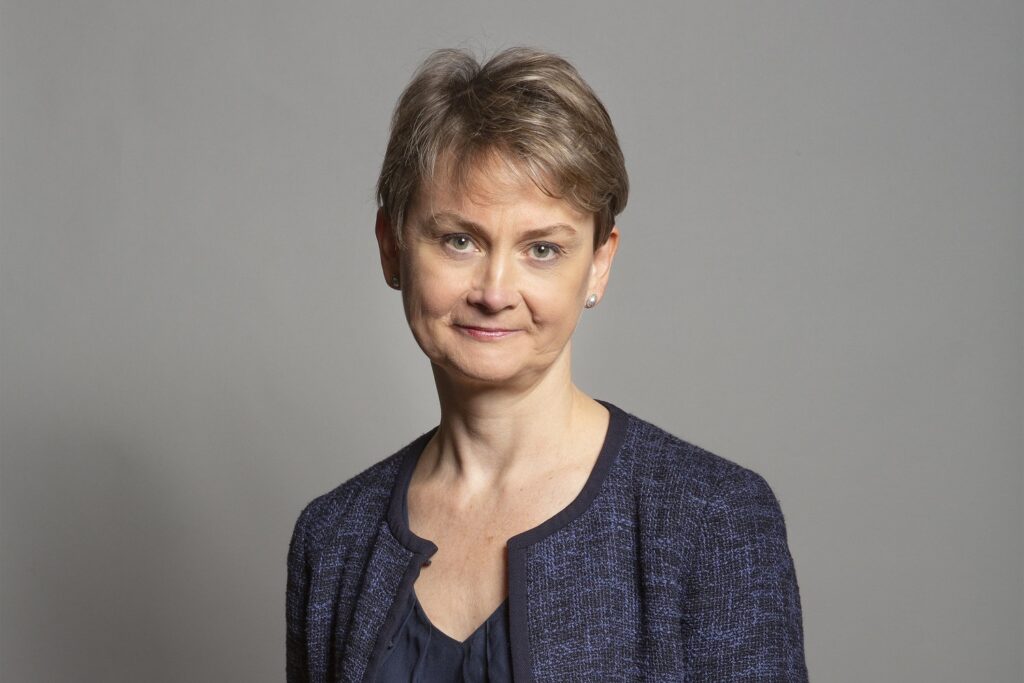What does the new Labour Government mean for youth work and young people?
16 July 2024
- Blog
We have a new government, with new people in power and new policy ideas, but what does this mean for youth work and young people?
The Labour Party’s manifesto set out its plans for government and we were pleased to see it included numerous references to youth work, writes Kate Roberts, UK Youth policy manager. These ideas are now being worked on behind the scenes to develop the necessary detail and plans for how to get these implemented in the near future. UK Youth will be working closely with young people, civil servants and politicians to help implement these new policies as effectively as possible.
Responsibility for youth work sits within the Department for Culture, Media and Sport. Lisa Nandy has been appointed Secretary of State and will be leading the government’s policy in this area. We look forward to working with Ms Nandy and her new ministerial team. Ms Nandy has a background in the charity sector, including children and young people’s charities, so we feel positive that she already has a good understanding of the challenges facing young people.
Young Futures Hubs
In Labour’s manifesto, the party pledged to deliver the Young Futures Hubs programme, aiming to “intervene earlier to stop young people being drawn into crime, creating a new network of hubs reaching every community. These hubs will have youth workers, mental health support workers, and careers advisers on hand to support young people’s mental health and avoid them being drawn into crime”. This brings together a number of important and interlinked aspects of young people’s lives: violence and crime, mental health and employability.
Labour has pledged that the hubs will be boosted by new youth workers to operate in Pupil Referral Units and hospital accident and emergency departments who can be based out of the hubs, to offer young people a pathway out of violence.
Labour’s manifesto earmarked £95 million for specific investment into these hubs and has talked about a long-term commitment of 10 years. The programme is currently being led by Home Secretary Yvette Cooper, but will need to be cross-Governmental in its implementation to achieve what it has set out to impact.

It is really positive to see the role of youth workers being central to this policy and we welcome Labour seeing youth workers as essential roles in the support system available to young people. However, we know there is a crisis in recruitment for youth workers in the UK, following more than a decade of severe cuts to the youth sector. Successful implementation of the Young Futures Hubs will require upstream efforts to bring in new cohorts of youth workers and invest in the leadership skills of the existing workforce.
We welcome this proposal and the impact it could have on the youth sector and on young people themselves. The devil will be in the detail and we still have a number of questions around the physical or virtual nature of the hubs, the provision of targeted versus open access youth work, the use of existing infrastructure and organisations, the involvement of young people in the design of the policy and more. We look forward to working with the new Government to flesh out these plans in support of young people. We will be advocating for the role of youth sector, and for young people’s needs of this programme, over the coming weeks.
Votes at 16
Many different political parties promised to lower the voting age should they win a majority in the General Election and the Labour Party was no exception. Its manifesto pledged to “increase the engagement of young people in our vibrant democracy, by giving 16- and 17-year-olds the right to vote in all elections”. We are pleased to see this commitment, because it was something young people and the youth sector have been campaigning for over a number of years.
Young people aged 16 and 17 already have the right to vote in local and devolved Parliamentary elections in Scotland and Wales and this policy would see those rights extend across the UK for all elections. This would add about 1.5m people to the electorate and we believe is a real sign of trust placed in young people and a positive move to recognise the importance of youth voice.
Sir Keir Starmer, the Labour leader and new Prime Minister, stated during the election campaign: “If you can work, if you can pay tax, if you can serve in your armed forces, then you ought to be able to vote.”
If you can work, if you can pay tax, if you can serve in your armed forces, then you ought to be able to vote.
Sir Keir Starmer, Prime Minister
It is key that politicians see young people as an important part of the society of our country, and provide a comprehensive offer to equip them to thrive.
We do not yet know when this policy may come in to place and what this may mean for the use of Voter ID or other proposed changes to our voting system – such as automatic voter registration. It is also important to note a more comprehensive and higher quality political education will be needed in schools and youth clubs to make this policy successful. We know lots of youth workers and youth organisations play a vital role in encouraging participation in democracy and the development of youth voice across the country and we hope this policy will recognise that key role in its development.
We would also love to see a commitment to listening to young people more intently and involving them in the design of services, beyond the introduction of votes for 16 and 17-year-olds. We very much welcome this proposal and look forward to working with the Government to support the delivery. We will be advocating for this pledge to be implemented in time for the next local elections in May 2025. Young people are ready to make their voices heard.

Youth guarantee
Labour has pledged to “establish a youth guarantee of access to training, an apprenticeship, or support to find work for all young people aged 18-21”. Such focus on youth employment is a welcome sign. However, we would like to see the age range for the Guarantee raised to 24.
While the detail has not be announced yet, it appears the Youth Guarantee will draw together existing funding and entitlements and we do not know how much new activity will be delivered. The manifesto pledged £85m toward this programme of work, but the scale of the challenge is much greater. We look forward to seeing more detail on the Guarantee itself in due course.
Labour also committed to guarantee two weeks’ worth of work experience for every young person and provide specialist careers advice in schools. It is important the new Government looks in detail at the role of educational enrichment and partnerships for supporting young people’s employability, as we know the youth sector plays an important role in this space and has lots to offer to support these outcomes, if funded sufficiently.
Missions
The Government is likely to take a missions approach to delivering these ambitions, which may see Governmental departments working closer together in pursuit of the goals related to supporting young people. We have long been calling for greater cross-Governmental collaboration to improve support for young people. Having this backed up by a minister for youth, alongside a wider strategy for young people’s needs, would help drive real change.
The success of any of Labour’s commitments will depend on how much the new Government understands and acknowledges the role of youth work in supporting young people. Youth work is a solution and needs to be recognised as such, rather than being considered a problem to fix.
It is positive to see these pledges for young people put forward by Labour, but there is a fair amount of clarity and detail needed to understand the potential impact on the youth sector and young people moving forward, as well as a need for consideration of the wider youth offer and role of youth work. We look forward to seeing more from the Government, working closely with politicians and civil servants, and continuing to advocate for the role of youth work in delivering for young people.

About UK Youth
UK Youth is a leading charity with a vision that all young people are equipped to thrive and empowered to contribute at every stage of their lives. With an open network of more than 8,000 youth organisations and nation partners; UK Youth reaches more than four million young people across the UK and is focused on unlocking youth work as the catalyst of change that is needed now more than ever. To find out more, visit ukyouth.org
UK Youth is involved in a range of programmes designed to help young people thrive, such as outdoor learning, physical literacy, social action and employability, including Hatch. For more on UK Youth’s programmes, see ukyouth.org/what-we-do/programmes